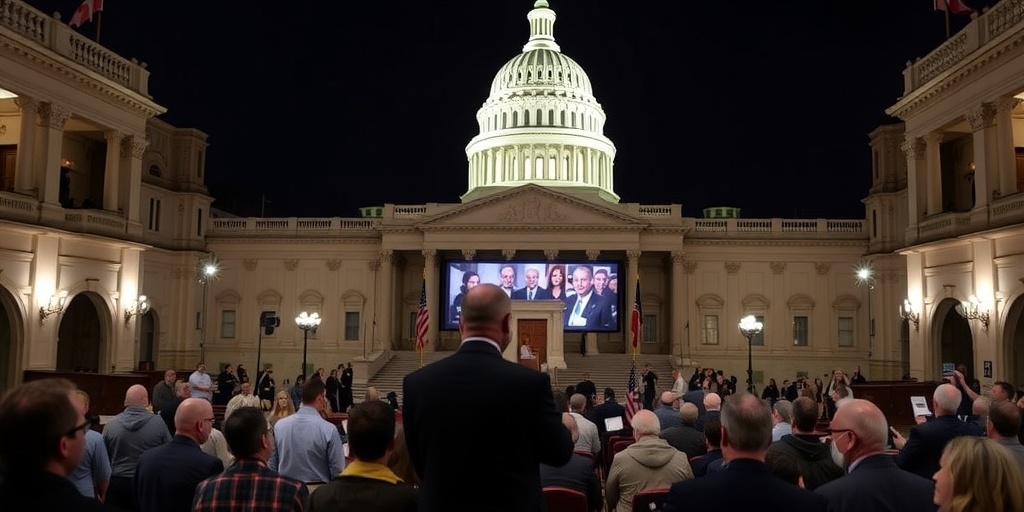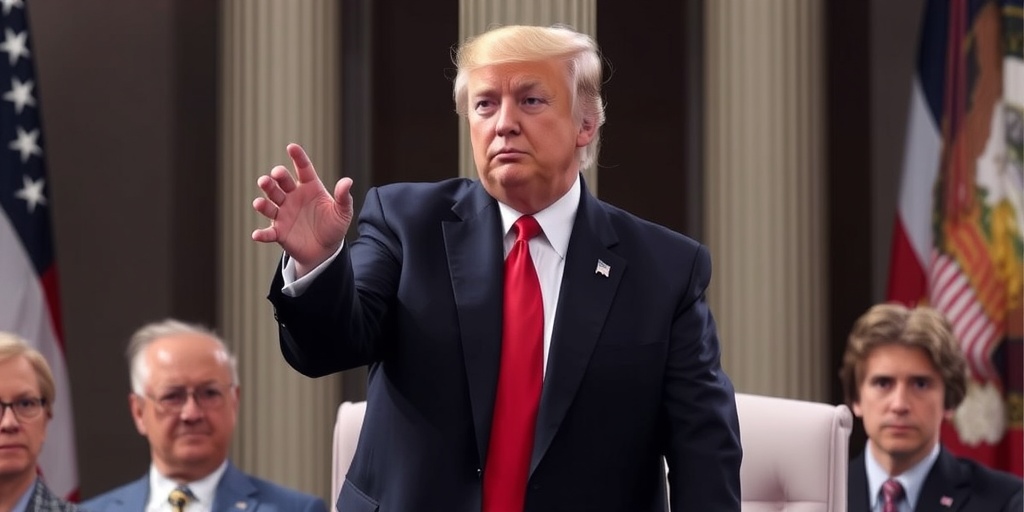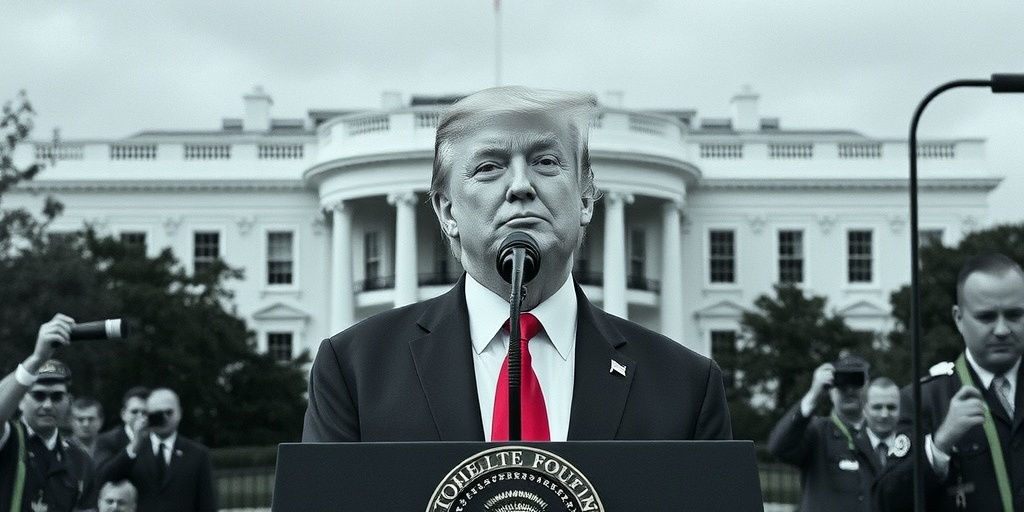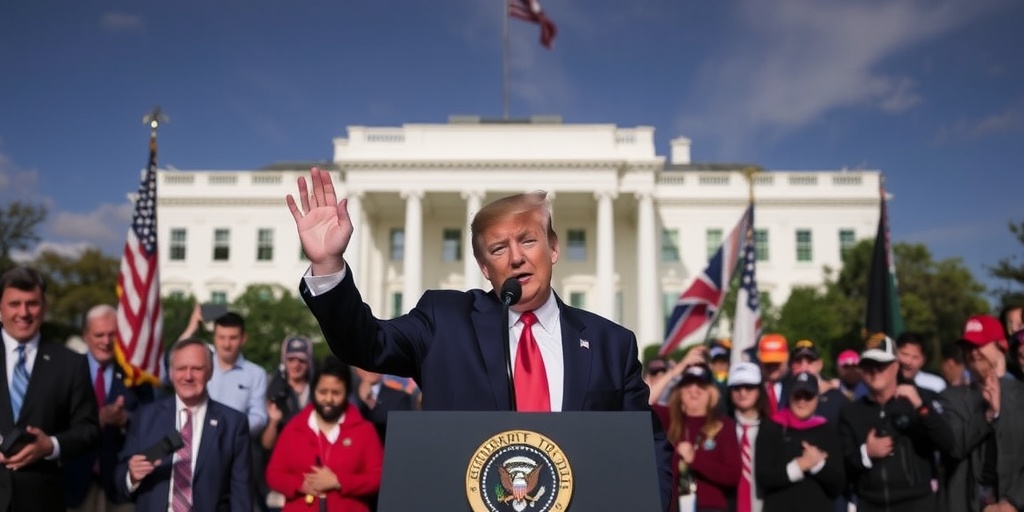Now Reading: Judge Halts Trump’s Funding Freeze, Citing Congressional Overreach
-
01
Judge Halts Trump’s Funding Freeze, Citing Congressional Overreach
Judge Halts Trump’s Funding Freeze, Citing Congressional Overreach
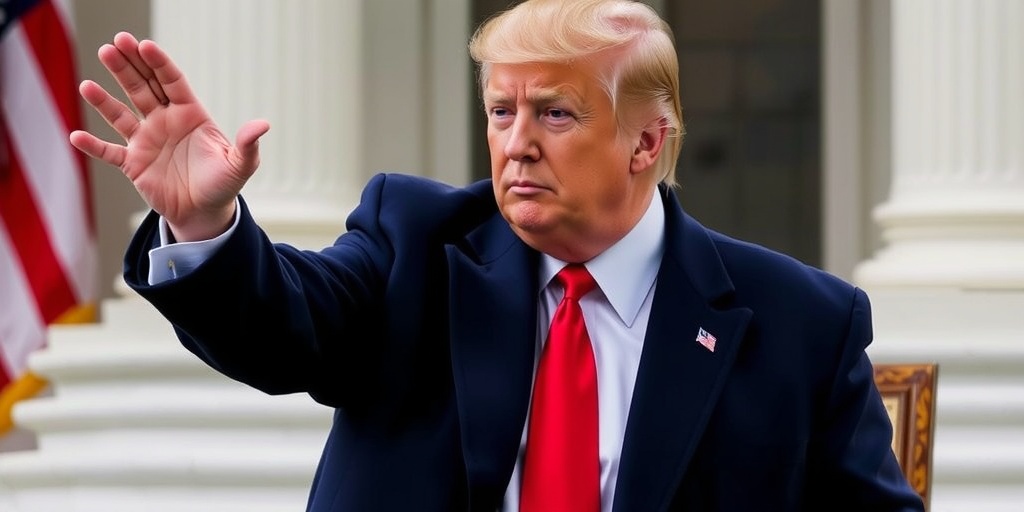
Federal Judge Blocks Trump Administration from Withholding Funds to States
A federal judge delivered a significant ruling on Thursday, reaffirming his decision to prevent the Trump administration from withholding billions of dollars in congressionally approved funds intended for 22 states and the District of Columbia. This decision represents a continuation of a temporary order previously issued by the judge, ensuring that these funds remain accessible to the states while a broader legal challenge unfolds regarding the administration’s spending priorities.
The ruling by Judge John J. McConnell Jr. of the Federal District Court for the District of Rhode Island focuses on what he describes as a case of executive overreach. In his opinion, Judge McConnell emphasized that high-ranking officials within the Trump administration had improperly enforced a mandate requiring government agencies to withhold funds that had already been authorized by Congress. This scenario highlights the ongoing tensions between state authorities and the federal government, particularly regarding how federal funds are allocated and spent.
Central to the case is a memo issued by the White House Office of Management and Budget, which called for a suspension of billions in grants until the administration could assess whether the funding aligned with President Trump’s policy priorities. This directive caused widespread confusion and concern among state officials, prompting some to take legal action to challenge the administration’s approach to funding.
In his latest ruling, Judge McConnell articulated the critical implications of withholding these funds, stating that without an injunction, the funding owed to the states would remain in a state of "indefinite limbo." He pointed out that the executive branch had placed itself above Congress by imposing limitations on congressionally appropriated and obligated funds, thereby undermining the legislative body’s authority over spending.
The coalition of states involved in the lawsuit highlighted the dangers presented by the Trump administration’s temporary funding suspension, particularly with regard to their ability to respond to emergencies and disasters. They cited concerns stemming from the Federal Emergency Management Agency (FEMA), noting that the withholding of funds could jeopardize their preparedness and response capabilities. This claim underscored the urgency of the situation, especially as states face natural disasters such as floods and wildfires.
In light of these concerns, the states filed a second motion last week to compel compliance with Judge McConnell’s previous order. They reported facing "significant obstacles" in accessing federal funds, even after the judge had instructed agencies to allow the funds to flow. The plaintiffs underscored that some states had submitted requests for disbursements as far back as February 7, further complicating their financial and operational situations.
The ruling also acknowledged the importance of timely access to emergency funds in the face of natural disasters. Judge McConnell expressed deep concern over the consequences of delaying federal assistance in areas ravaged by floods and fires across the nation. He stated that the unavailability of federal funding would have an evident and acute impact on emergency management and preparedness efforts in the states, further exacerbating potentially disastrous situations.
However, the situation is not without its complexities. With the Trump administration’s agenda influencing funding decisions, the states involved in the lawsuit have found themselves caught in a contentious legal battle over executive authority and the balance of power between state and federal governments. As the conflict unfolds, the implications of the ruling will likely extend beyond the immediate financial concerns, touching on broader issues regarding governance and accountability.
In an effort to address these delays, Judge McConnell ordered FEMA to detail the steps it had taken to unfreeze the funds by March 14. This explicit directive adds an additional layer of scrutiny to the agency’s actions and the administration’s overall funding strategy.
As the litigation develops and further hearings approach, the outcomes will be closely monitored by many stakeholders. The case represents a pivotal moment in the ongoing debate over federal funding, executive power, and state rights, raising critical questions about the role of government and the fundamental principles of democratic governance. The Trump administration’s spending policies and their potential consequences for states across the country remain center stage as this legal battle continues to unfold.
Stay Informed With the Latest & Most Important News
Previous Post
Next Post
-
 01New technology breakthrough has everyone talking right now
01New technology breakthrough has everyone talking right now -
 02Unbelievable life hack everyone needs to try today
02Unbelievable life hack everyone needs to try today -
 03Fascinating discovery found buried deep beneath the ocean
03Fascinating discovery found buried deep beneath the ocean -
 04Man invents genius device that solves everyday problems
04Man invents genius device that solves everyday problems -
 05Shocking discovery that changes what we know forever
05Shocking discovery that changes what we know forever -
 06Internet goes wild over celebrity’s unexpected fashion choice
06Internet goes wild over celebrity’s unexpected fashion choice -
 07Rare animal sighting stuns scientists and wildlife lovers
07Rare animal sighting stuns scientists and wildlife lovers














